Like I need to create a table out of this record then what is the best way to do it?

Like I need to create a table out of this record then what is the best way to do it?

The short answer to your question is "it depends, but it is likely that you want to separate the values". Especially if you expect a query like "show me all ip-adresses with a range of /24", you will have to atomize / separate these values.
The long answer to the question "what is the best way to do it" is understanding normalization.
As you tagged your question with "normalization" yourself, you may want to read this article.
Happy coding.
Short answer : Yes. You can
Long answer : Oracle doesn't care about what you are storing. As long as the column type is Varchar2 or Clob (for instance) you can store litterally any character you want. The problem is what is the best way for you to handle such data. If you are ok with that format, Oracle will follow.